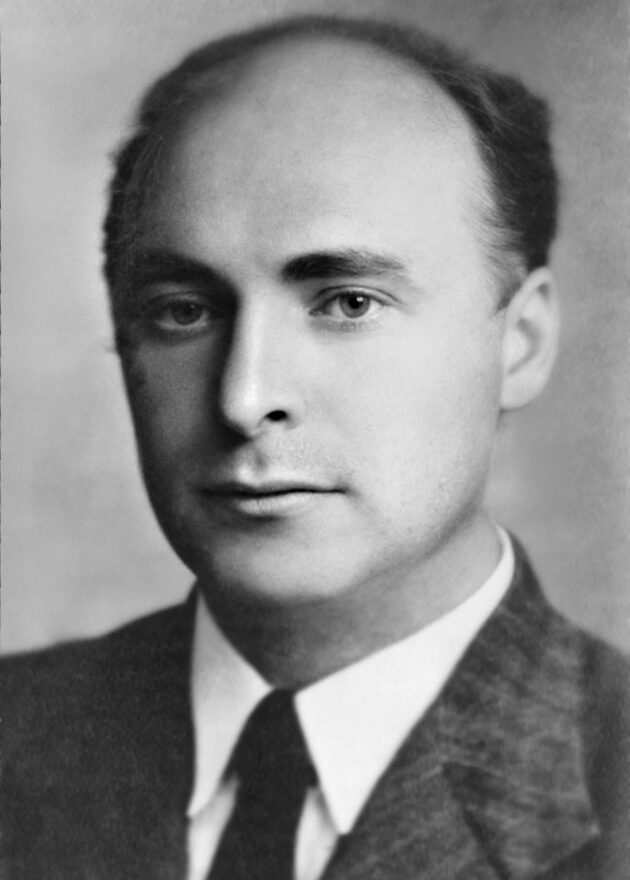On January 27, 2024, this
Zeitpunkt was installed near the address Museumstrasse 44. The initiative for this came from erinnern:at.
Born 29.10.1910 in Niederndorf bei Kufstein
Died 6.5.1945 in Innsbruck
Franz Josef Maria Mair studied English and German at the University of Innsbruck. He became a teacher at the Akademisches Gymnasium, where he himself had gone to school. His students found him different, and all the more interesting for that reason. Mair was an erudite man with impeccable manners and the style of an English gentleman. He wanted to teach his students more than just the English language. With his liberal outlook, Mair introduced his students to an intellectual and cultural world that would otherwise have remained hidden from them during the Nazi era, when they were cut off from modernity. “English Mair”, as he was called, had a command of rhetoric that made him a captivating speaker. He employed his talent to express veiled criticism of the Nazi regime. His apartment became a second classroom. In its relaxed atmosphere, he discussed English, literature and philosophy with the young people. They also listened to music together: reviled Jewish composers of the classical period and proscribed jazz. In the course of time, these meetings became more political; Mair explained the hopelessness of the war to his students. It was a source of inspiration and a kind of spiritual recharging station for young people who were committed to opposing the Nazi regime.
On one occasion Mair was reported to the police. He had publicly criticised the behaviour of Nazi officials and the Hitler Youth movement as well as the regime’s anti-Semitic policies. He was very lucky to avoid being sentenced to death by the People’s Court in Berlin.
Together with a select group of young people, Mair engaged in resistance activities. They made contact with other resistance groups, and supported deserters and an agent of the Allies.
The climax of the activities of the Franz Mair Group came at the beginning of May 1945, when the Allies entered Tyrol and resistance fighters took over barracks and finally the Landhaus (regional government building and Nazi headquarters). About ten members of the group and Franz Mair himself were involved.
The teacher was a free spirit, committed and courageous; a skilled fighter he was not. While helping to secure the Landhaus on 3 May 1945, Franz Mair was shot. He was immediately taken to hospital, but his wounds were so severe that he died three days later.
It was not primarily his role in the military resistance that made Franz Mair such a special person; it was his dedication to his students. Mair schooled them in critical thinking and taught them values apart from National Socialism.
Source:
Hormayr, Gisela: “Die Zukunft wird unser Sterben einmal anders beleuchten”. Opfer des katholisch-konservativen Widerstands in Tirol 1938–1945, Innsbruck-Wien-Bozen 2015, pp. 230-232.
Schreiber, Horst: Widerstand und Erinnerung in Tirol 1938-1998. Franz Mair: Lehrer, Freigeist, Widerstandskämpfer, Innsbruck-Wien-Bozen 2000.
